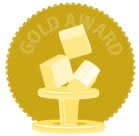Elite Beat Agents (Nintendo DS) Review
By Ben  29.07.2007
29.07.2007

Rhythm action games have come a long way since their inception, with titles like Konami's Dance Dance Revolution for Playstation and Sega's Space Channel 5 (Dreamcast) proving that a massively complex storyline wasn't completely necessary for a wholly interesting gaming experience. However, in today's tech-thirsty society, can touching a few panels on a screen satisfy?
The origin of Elite Beat Agents is rather obscure. It started off as a game called "Osu! Tatakae! Ouendan" (reviewed here), released only in Japan, featuring a cheer squad (the Ouendan) that helps various people in need by cheering them through music. The news that the game was going to be translated for Western shores came as a shock and a relief to many early adopters of the imported game, as the typically J-Pop-like tunes available in the original certainly weren't very "J-Pop"ular (badum tsh!) elsewhere. E3 2006 rolled around and the world rejoiced as journalists reported that the localisation hadn't taken away too much of the quirky charm of the original. Whilst the release of the game on American shores pleased many of the people raring to try out the funky, innovative game design, sales didn't directly reflect the anticipation. It has now made its way over to Europe, and suffice to say, the game is very good indeed.
The main gripe here is the fact that the track list is definitely geared towards a North American audience instead of a broader spectrum. Saying this, some of the scenarios present in songs like Sk8er Boi and Y.M.C.A are instantly recognisable, but if you've spent half of your life with your head in the (metaphorical) jazz-sand or classical-sand, Hoobastank's Without a Fight and Ashlee Simpson's La La might seem a little out of place in the game. Thankfully, the game's infectious "just one more go" element encourages you to retry missions until you know the words and chord progressions of each song.
The gameplay, thankfully, more than compensates for the slightly 'foreign' song list, with a simple yet satisfying system that will make you look like you know what you're doing even if you're just turning the game on. Basically, small numbered circles appear on the screen and you have to tap them in time to the music (and sometimes in time to the lyrics, not the actual instrumental music). "How do you know when to tap them?", you ask. Well, small rings appear outside the circles and gradually decrease in size. Once the ring overlaps the circle, you know it's time to tap away. Some circles will be joined together with another, and a small pathway will appear in between. For this, you must slide your stylus along a small ball that rolls along the pathway, keeping to the line exactly. If you miss, you'll break a combo and get a cross, 'awarded' for missing a beat. The fact that numbers are involved adds to the initial confusion, but soon you navigate the screen like a master, tapping and sliding in order with ease. There is another, less complex mechanic that involves spinning on the screen as fast as possible in any direction in order to fill up a meter that gains points, and whilst this certainly isn't the strongest of the game's otherwise fantastic elements, it breaks up the gameplay a little, which is more than welcome.

The presentation of the game is joyously smooth, employing all sorts of transitional effects to boot. It is pleasingly simple to navigate through the menus and the tutorial at the beginning of the game offers a useful, if not slightly patronising entry into the world of the Elite Beat Agents. The game is generally very colourful too, which is wonderful considering the limitations of the DS screen's colour output compared to that of the PSP or otherwise. The animation during the missions also has a lot of charm, something that many today's games lack in favour of sheer realism.
The primary stories entail simpler events like a girl who is trying to tell a guy that she wants to go 'steady' (I wondered what this meant, too) but later on in the game, things become weirder, when a fire-breathing golem tries to wipe out a retired baseball pro at a theme park. Generally, the tone is humorous, but you will stumble upon one particular story that is actually rather touching, complemented by the change in pace and the softening of the sound effects. It would be harsh to give too much away, but if you've got a soft heart, preparing the hankies would be a good idea.
Multiplayer is surprisingly robust in Elite Beat Agents, and whilst it never quite outshines the fun of playing on your own, it is clear that the developers didn't just throw the mode together as a last thought. You can share the game with up to 3 other people and take part in a sort of battle mode, albeit with a limited number of songs to choose from. If your opponents also own the game, the whole track list is opened up, or they can then become your cohorts in a co-operative mode. Add to this the fact that you can play against your own saved ghost data and you start to see why this section of the game could potentially offer a whole bunch of entertainment on top of the single player. Inis also included rumble pack functionality to give you a little bit of (noisy) force feedback should you ever desire to take up that opportunity, and altogether they created a game that rarely disappoints and often impresses.

Cubed3 Rating
Exceptional - Gold Award

This is a true gem, and will probably go unnoticed by the general public or marked as being too quirky, but seriously, if you find enough money just sitting in your bank account, take the plunge and buy this game. It really is splendid.
Comments
Comments are currently disabled

 Sign In
Sign In Game Details
Game Details
 Out now
Out now  Out now
Out now  Out now
Out now  Out now
Out now  Subscribe to this topic
Subscribe to this topic Features
Features






 Top
Top

